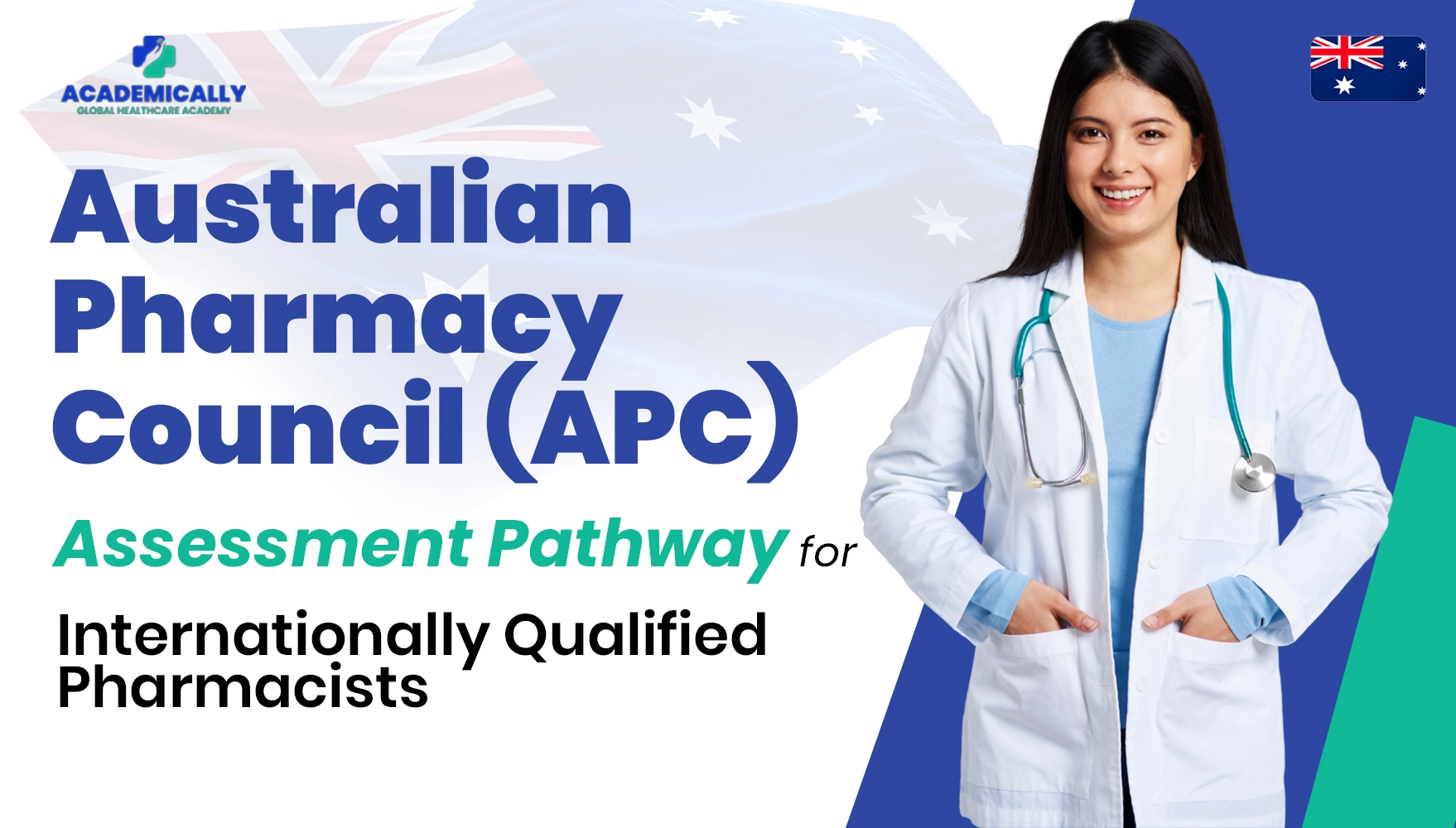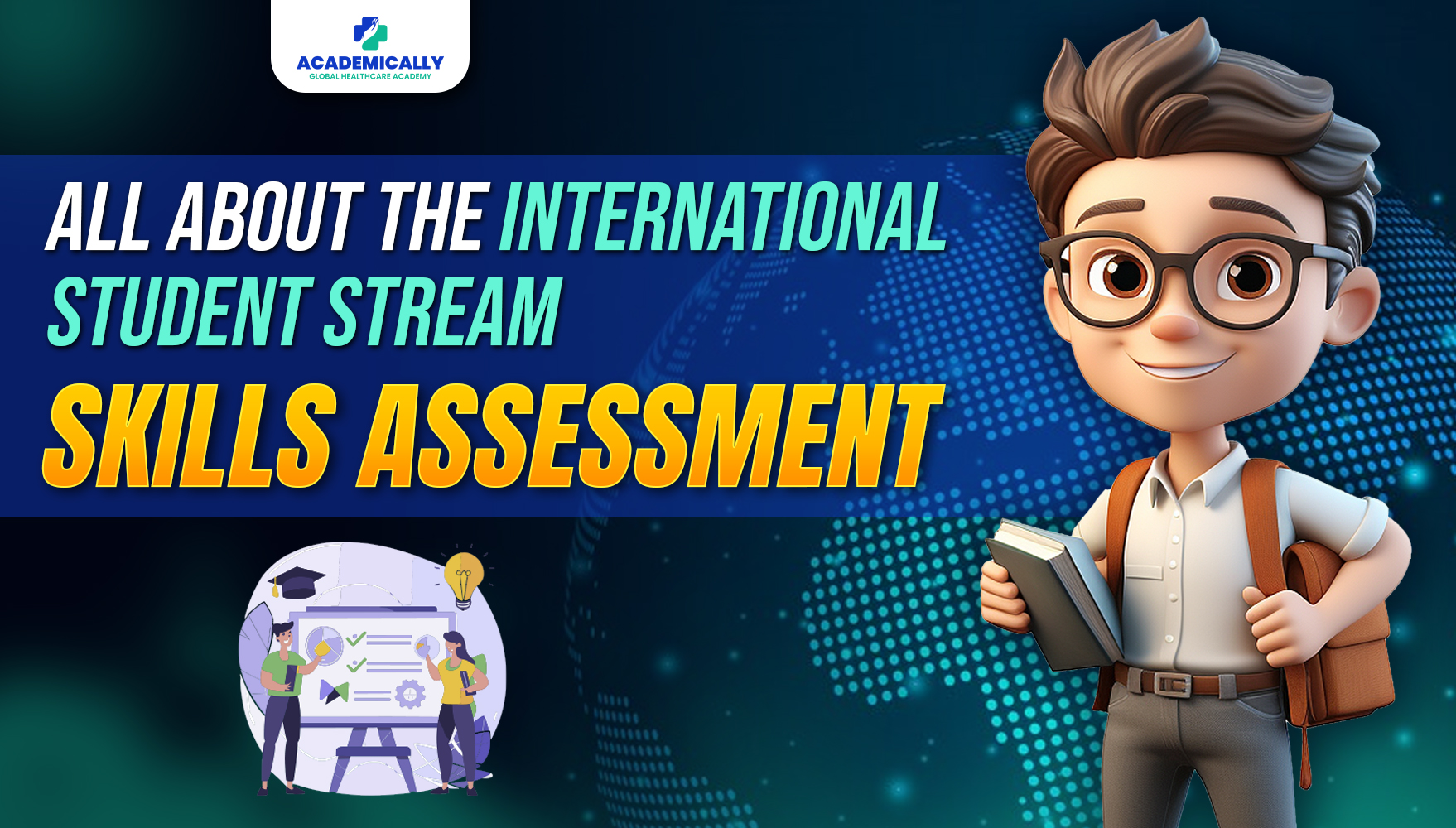Dreaming of practicing pharmacy in Australia, but don’t know where to start? You’re not alone. The journey can feel overwhelming, but the Australian Pharmacy Council (APC) has a clear, structured pathway to help internationally qualified pharmacists like you get registered, work safely, and even migrate to Australia.
In this blog, we break down everything from exams and assessments to internships and registration.
Why Skills and Competency Assessments Matter
Before you start practicing in Australia, it’s essential to prove that you have the knowledge, skills, and competency needed to provide safe, effective healthcare. The APC makes sure of this by:
- Checking the knowledge and competency of pharmacists trained overseas.
- Running exams to test practical and theoretical pharmacy skills.
- Issuing a Skills Assessment Outcome that supports your visa application if you plan to migrate.
In short, APC ensures that every pharmacist practicing in Australia is well-prepared to serve patients safely.
The skills assessment helps in two ways:
- Registration – You need to be registered with the Pharmacy Board of Australia through Ahpra to practice.
- Migration – If you’re moving to Australia, you’ll need a Skills Assessment Outcome for the visa process.
Different Skills Assessment Streams
The APC doesn’t follow a “one-size-fits-all” approach. Depending on your education and registration, you’ll be assessed through one of four streams:
1. Competency Stream
This stream is for pharmacists who:
- Graduated from Canada, Ireland, the UK, or the USA.
- Are currently registered as pharmacists there.
- Want to work or migrate to Australia.
Since these countries have pharmacy education similar to Australia, the assessment focuses on aligning your skills with local standards.
2. International Student Stream
For pharmacists who:
- Graduated from an Australian or New Zealand pharmacy program as an international student.
- Are registered or eligible to be registered.
- Plan to work or migrate to Australia.
Even if you studied locally, APC may assess you for migration purposes.
3. Knowledge Stream
This stream applies if you:
- Graduated from a pharmacy program outside Australia, Canada, Ireland, New Zealand, the UK, or the USA.
- Want to work or migrate to Australia.
This stream usually involves a more detailed evaluation to ensure your education matches Australian standards.
4. NZ Registered Pharmacist Stream
For pharmacists who:
- Graduated in New Zealand.
- Are registered there.
- Plan to migrate and work in Australia.
New Zealand qualifications are close to Australian standards, so the process is slightly easier.
The Overseas Pharmacist Readiness Assessment (OPRA)
If your pharmacy degree is from a country other than Australia, New Zealand, USA, UK, Ireland or canada. You’ll likely need to take the Overseas Pharmacist Readiness Assessment (OPRA). Think of it as a checkpoint to make sure your skills meet Australian requirements.
Who Can Take OPRA?
To be eligible, you must:
- Have a Bachelor of Pharmacy (BPharm) or Doctor of Pharmacy (PharmD).
- Be actively registered as a pharmacist in your home country.
- No work experience required — you can take it right after graduating.
What Documents Do You Need?
Make sure everything is translated into English:
- Degree certificate
- Academic transcript
- Birth certificate
- Passport
- Government ID
- Passport-sized photo
- Pharmacist registration certificate
Having these ready makes your application smooth and hassle-free.

Step-by-Step Guide to Practicing in Australia
Here’s a simple roadmap to guide you from OPRA to full registration:
1. Initial Skill Assessment
The APC reviews your documents to confirm eligibility. Once approved, you can register for OPRA.
2. Take the OPRA Exam
- Format: 120 multiple-choice questions
- Duration: 2.5 hours
- Frequency: March, July, and November
- Tip: No negative marking, but preparation is key.
This exam tests your practical knowledge and understanding of pharmacy practice in Australia.
3. Meet English Proficiency Requirements
You need to prove you can communicate effectively:
- IELTS (Academic): Minimum 7.5 overall, 7 in each section.
Good communication is essential for patient safety and professional success.
4. Internship & Provisional Registration
After passing OPRA and English tests, you get provisional registration. This lets you start a paid pharmacy internship in Australia, usually totaling 1,575 hours.
During your internship, you:
- Learn the Australian pharmacy system
- Get hands-on experience dispensing medications
- Receive mentorship from experienced pharmacists
5. Intern Oral & Written Exam
After completing at least 75% of your internship, you take the Australian Intern Written and Oral Examination.
Passing this exam shows the APC and Pharmacy Board that you’re ready to work independently.
6. Full Registration
Once all exams and internship requirements are complete, you can register fully with the Pharmacy Board of Australia and practice independently.
Skills Assessment for Migration
Even if your goal is migration rather than immediate practice, the APC plays a key role:
- A Skills Assessment Outcome is required by the Department of Home Affairs for visa applications.
- International pharmacists with Australian or New Zealand qualifications also need this outcome if they are not citizens.
Think of it as a stamp of approval that your skills meet Australian standards — crucial for both registration and migration.
Tips for a Smooth APC Journey
- Get your documents ready early — translated transcripts, registration certificates, and passports are essential.
- Familiarize yourself with OPRA and intern exams to reduce surprises.
- Work on English proficiency — it’s critical for patient safety and exam success.
- Plan your internship carefully — look for positions that provide visa sponsorship if needed.
- Stay updated — APC updates guidelines and exam schedules regularly.
Conclusion
Practicing pharmacy in Australia may seem challenging, but the APC makes the pathway clear and achievable. From OPRA and English exams to internships and full registration, every step prepares you to be a competent, independent pharmacist. With the right preparation and guidance, your dream of practicing in Australia can become a reality.






